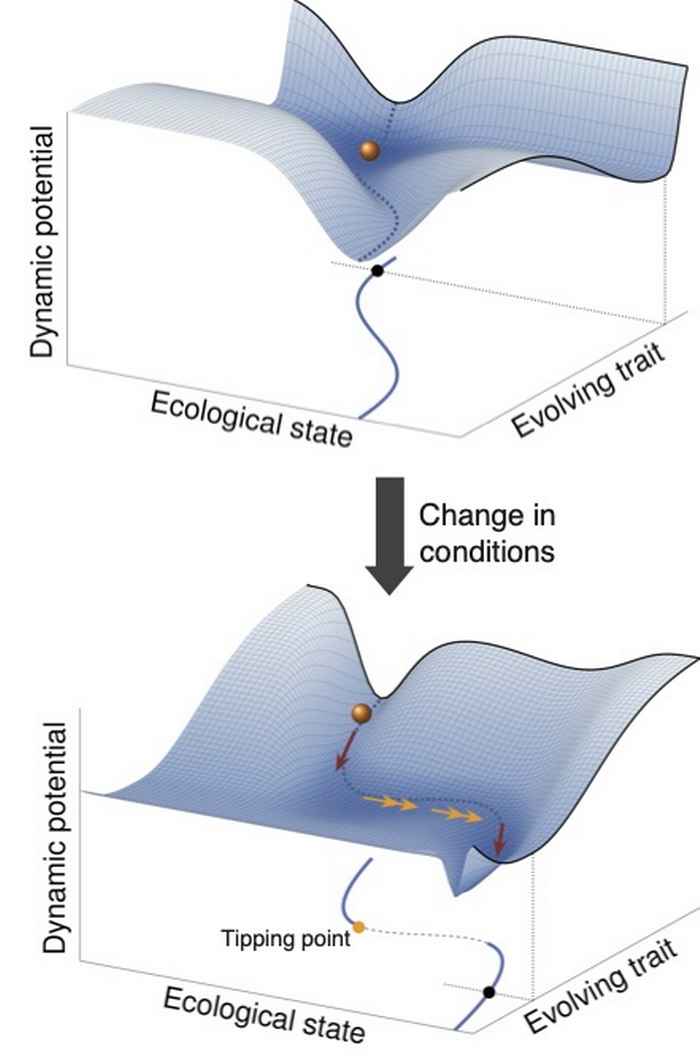1.2 Ecological changes with minor effect initiate evolution to delayed regime shifts
Chaparro‐Pedraza, P. C. & de Roos, A.M. (2020)
Keywords: Complex, Adaptive Systems; Regime shifts; Tipping points; Evolution
Author André de Roos on the article:
Small changes in environmental conditions can cause abrupt and dramatic changes in ecosystems. In shallow lakes, for example, small changes in nutrient input may cause a sudden shift from a clear-water state with many species to a turbid state with low biodiversity. As another example, small increases in grazing pressure may result in the collapse of plant communities in semi-arid regions, ultimately transforming large areas into deserts. These abrupt changes, known as regime shifts, are not restricted to ecological systems but occur more generally; the collapse of stock markets and the financial crisis of 2008 are often featuring as major examples in economics. Analogous to the effects of the financial crisis, regime shifts in ecosystems have substantial impacts on the benefits that people receive from nature.
Until now, research into regime shifts has focused on critical thresholds, or "tipping points," in external conditions — e.g. when crossing a certain temperature threshold triggers a sudden and immediate shift to desertification. In our paper we reveal how a small change in the external environment, which has little immediate impact and is intended to be beneficial, induces slow adaptive changes in the species that inhabit the system. After what can be a considerable delay, these adaptive changes drive the individual character traits across a critical threshold value and the regime shift manifests itself as a delayed reaction. The time that elapses between the initiating change in environmental conditions and the ensuing regime shift may be arbitrarily long, depending on the speed of the evolutionary process, in other words, depending on how fast the character traits change.
We demonstrate how these evolution-induced, delayed regime shifts may arise in populations of salmon. At different stages of their lives, salmon live in freshwater and marine ecosystems, which both house entirely different biological communities. When the mortality that salmon is exposed to in the marine environment is reduced slightly, the immediate effects are minor and positive. However, it initiates an evolutionary process that slowly drives individual character traits, in particular the body size at which salmon migrate from the river to the ocean, to a critical threshold where a regime shift occurs. Remarkably, this regime shift produces dramatic changes in community composition in both the freshwater and marine communities simultaneously, even though nothing changed in the environmental conditions of the freshwater community.
Our paper highlights that adaptation may drive delayed regime shifts in any complex, interdependent system consisting of components with adaptable properties, such as human behavior. The 2008 financial crisis can serve as an example, given that it was initiated by financial deregulation in the late 1970s that culminated in a collapse only years later, following a steady increase in risky financial lending practices.

Chaparro‐Pedraza, P. C. & de Roos, A.M. (2020). Ecological changes with minor effect initiate evolution to delayed regime shifts. Nature Ecology & Evolution 4 (3), 412-418.